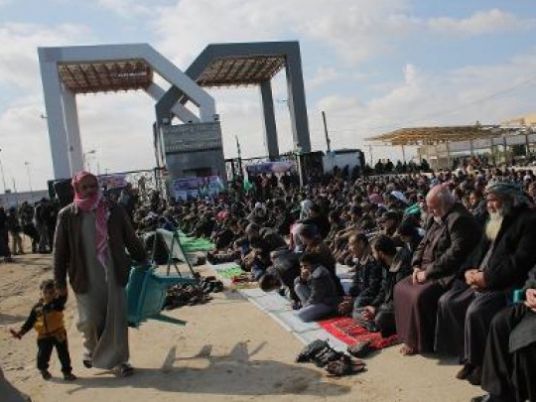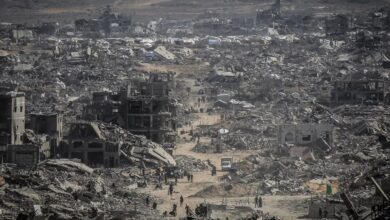The Palestinian Authority on Tuesday protested against Israeli military orders that could see tens of thousands of Palestinians deported from the West Bank, describing it as “ethnic cleansing”.
On Sunday Israeli daily Haaretz revealed that a new military order aimed at preventing infiltration will come into force this week, enabling the deportation of tens of thousands of Palestinians from the West Bank, or their indictment on charges carrying prison terms of up to seven years.
The measure, due to come into force on Tuesday, “represents yet another evidence of Israel’s consecutive governments to ethnical cleanse Palestinians,” the Ramallah-based Palestinian Information Ministry said in a statement.
Palestinian Prime Minister Salam Fayyad said that the recent Israeli measure "threatens the emptying of large areas of land from its Palestinian inhabitants."
Ten Israeli human rights organizations have appealed to Defense Minister Ehud Barak to freeze the orders, which were issued on October 13, 2009, with the provision they come into force within six months.
The military orders class people living in the West Bank without the proper documentation as "infiltrators".
"The order targets thousands of Palestinians from Gaza who work and live in the West Bank and could lead to their forced deportation to the Gaza Strip," Fayyad said.
Also affected are Palestinians who have identification papers from neighboring countries as well as foreign women married to Palestinians residing in the West Bank.
Fayyad said the measures contradict International Humanitarian Law as well as UN Security Council decisions which condemn forced deportations.
With the measures, Israel "aims at deepening the hold of the occupation in the West Bank and facilitating more Israel land-grab," the prime minister said.
Earlier Monday, Arab League Secretary General Amr Moussa also condemned the Israeli move, telling reporters in Damascus that "it is hard to establish real peace in the region due to the Israeli measure." His comments followed a meeting with Syrian President Bashar al-Assad.
"We reject such measures and we call on the international community to bear responsibility," Moussa said, adding that an Arab League meeting will be held to discuss the situation.
Israel has defended the West Bank policy, saying that it is not meant to expel Palestinians.
"What we’ve done here is we’ve strengthened the rights of people who face such deportation by creating … an independent judicial oversight mechanism, which makes sure there are checks and balances and that the legal rights of people are protected," Mark Regev, a spokesman for the Israeli government told Al Jazeera news channel.
Under the old order, those served with deportation orders could be deported the same day, whereas the new amendments provide a 72-hour appeal period, he said.
According to Haaretz, "the order’s language is both general and ambiguous, stipulating that the term infiltrator will also be applied to Palestinian residents of Jerusalem, citizens of countries with which Israel has friendly ties [such as the United States] and Israeli citizens, whether Arab or Jewish."
"All this depends on the judgment of Israel defense forces commanders in the field," the newspaper said.
Chief Palestinian negotiator Saeb Erekat called on US Mideast envoy George Mitchell, among others, to immediately intervene and pressure Israel to revoking the military order.
Erekat described the orders "racist" and a "flagrant violation of all past agreements, international law and the Fourth Geneva Convention," in particular article 49, which prohibits any kind of forcible transfer as well as the deportation of protected persons and civilians from the occupied territory.




